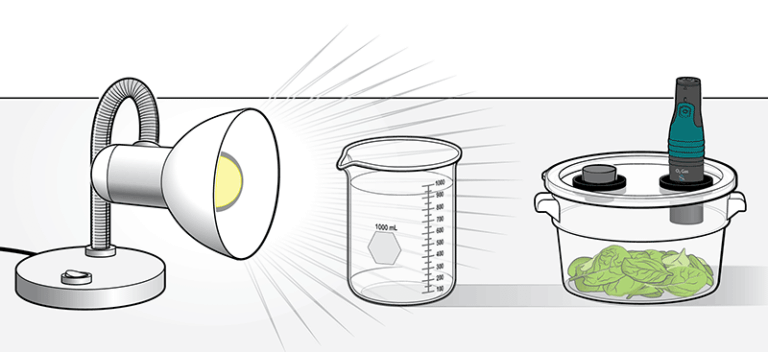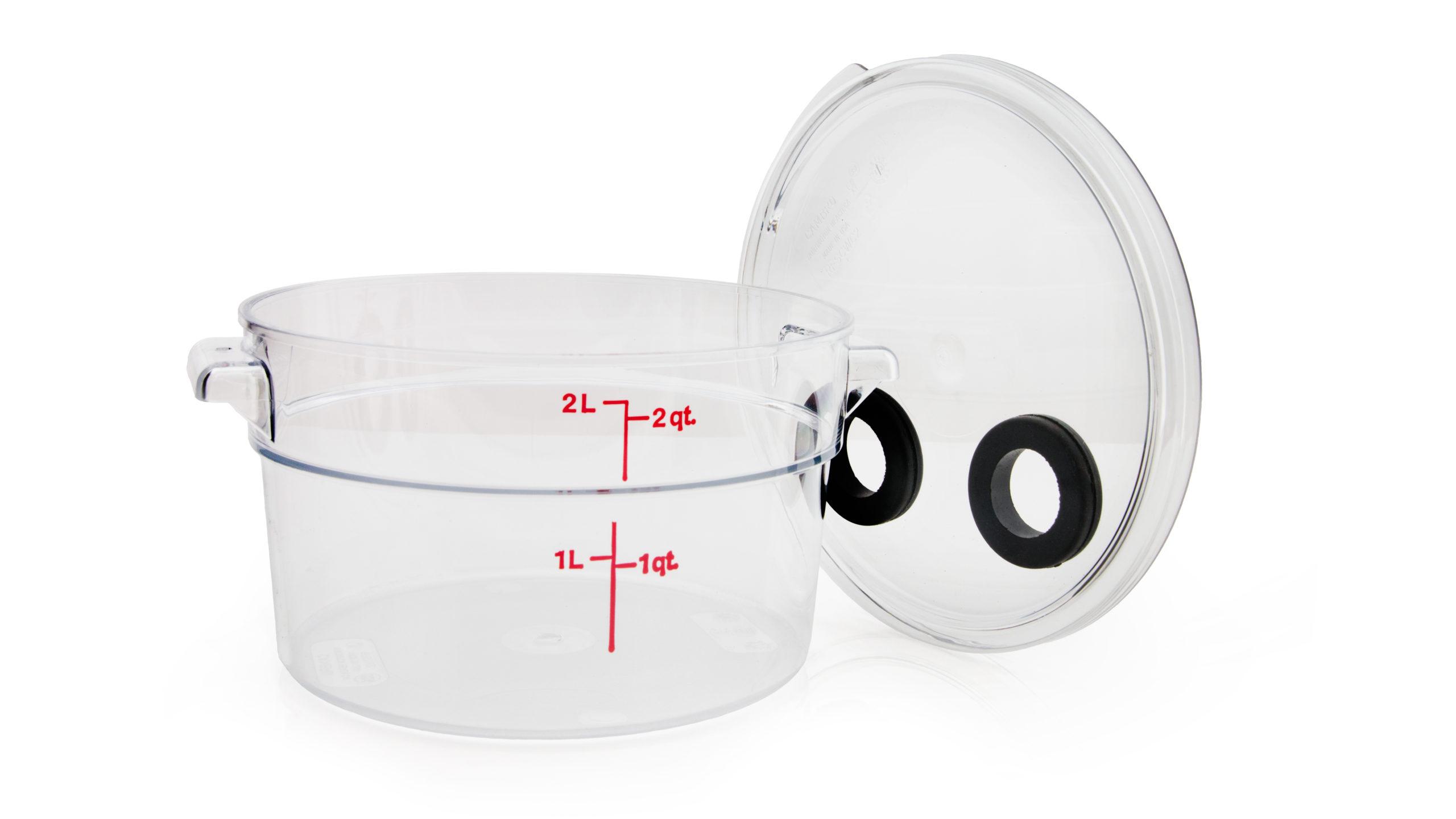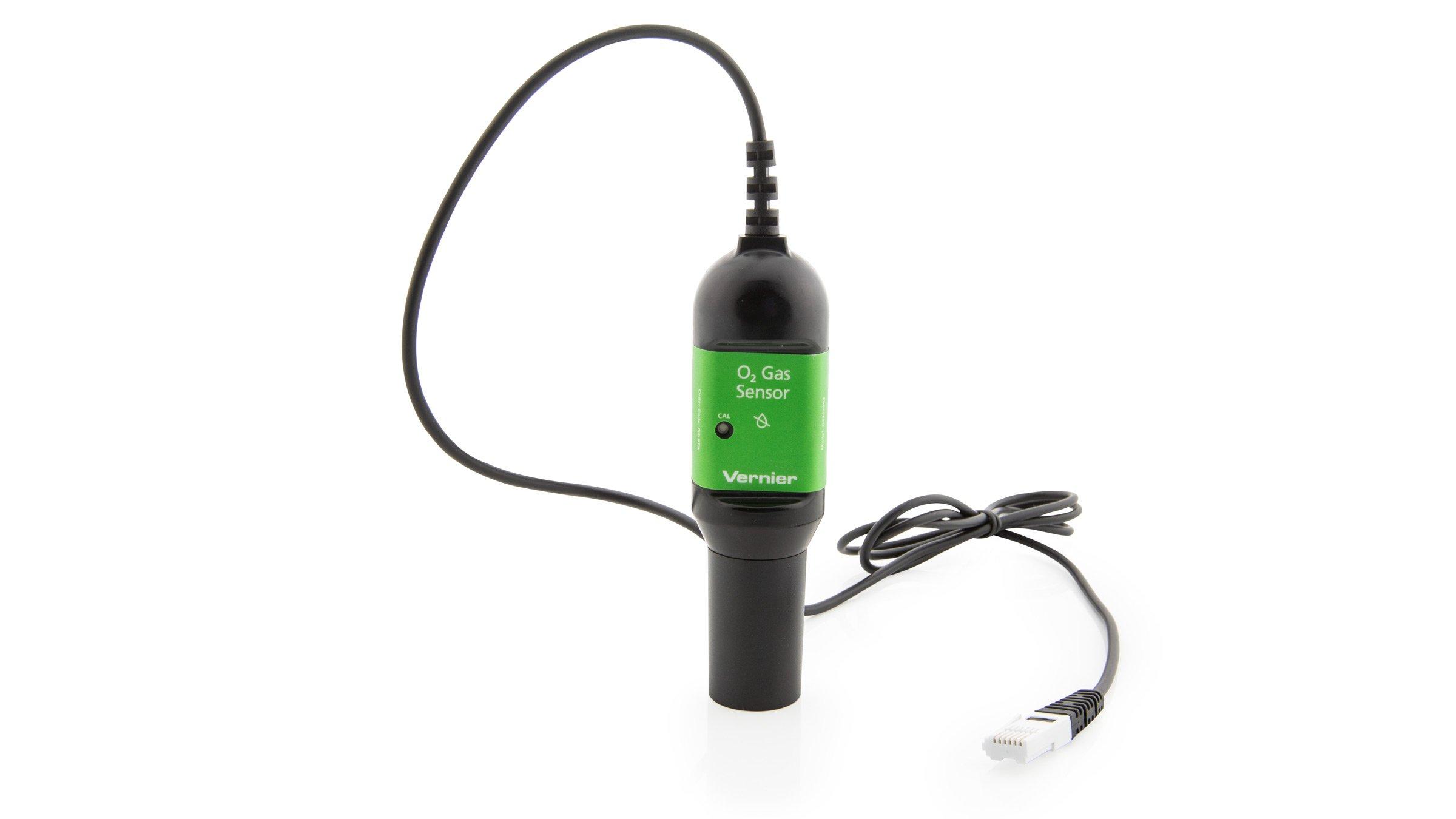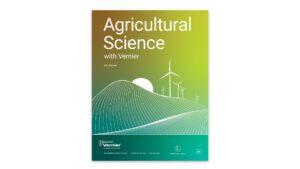Photosynthesis and Respiration (O2)
Experiment #12C from Agricultural Science with Vernier
- Subject
- Agricultural Science

Introduction
Plants make sugar, storing the energy of the sun into chemical energy, by the process of photosynthesis. When they require energy, they can tap the stored energy in sugar by a process called cellular respiration.
The process of photosynthesis involves the use of light energy to convert carbon dioxide and water into sugar, oxygen, and other organic compounds. This process is often summarized by the following reaction:
Cellular respiration refers to the process of converting the chemical energy of organic molecules into a form immediately usable by organisms. Glucose may be oxidized completely if sufficient oxygen is available by the following reaction:
All organisms, including plants and animals, oxidize glucose for energy. Often, this energy is used to convert ADP and phosphate into ATP.
Objectives
- Use an O2 gas sensor to measure the amount of oxygen gas consumed or produced by a plant during respiration and photosynthesis.
- Determine the rate of respiration and photosynthesis of a plant.
Sensors and Equipment
This experiment features the following sensors and equipment. Additional equipment may be required.
Ready to Experiment?
Ask an Expert
Get answers to your questions about how to teach this experiment with our support team.
- Call toll-free: 888-837-6437
- Chat with Us
- Email support@vernier.com
Purchase the Lab Book
This experiment is #12C of Agricultural Science with Vernier. The experiment in the book includes student instructions as well as instructor information for set up, helpful hints, and sample graphs and data.




